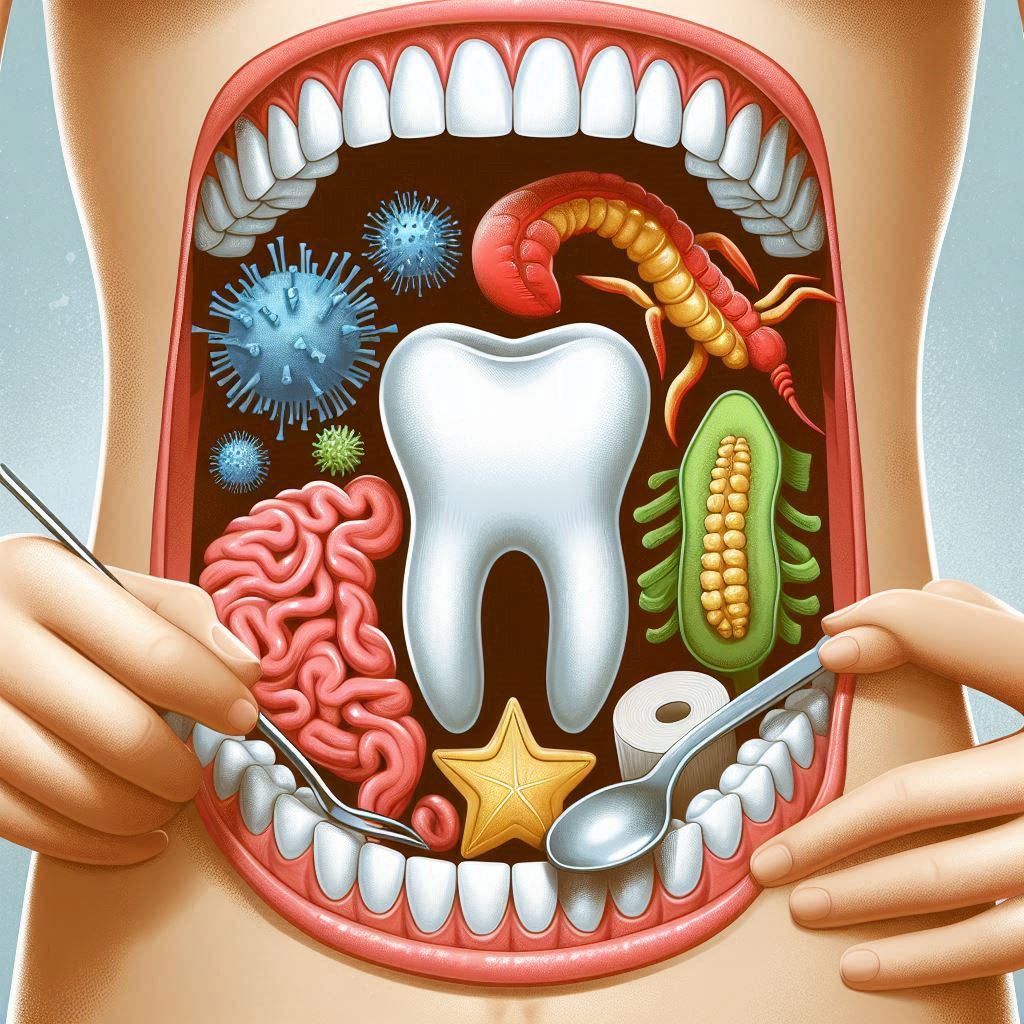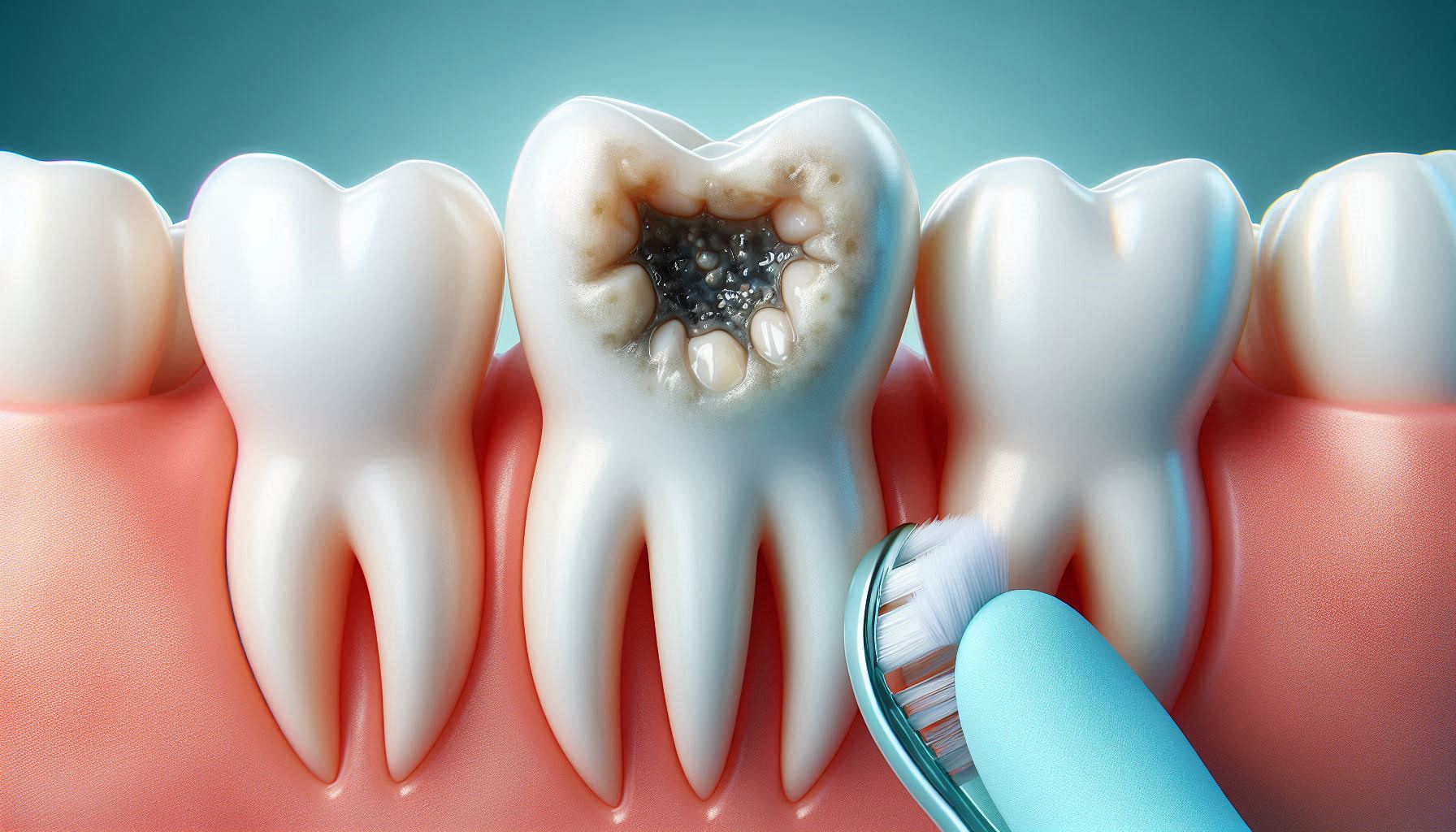Extended fasting refers to any fasting period longer than 24 hours, where individuals refrain from consuming food for extended periods. Unlike intermittent fasting, where people eat during specific time windows, extended fasting involves a prolonged abstinence from food, sometimes lasting several days. This practice has gained popularity in recent years due to its potential health benefits, including weight loss, improved metabolic function, and cellular repair through processes like autophagy.
However, while many focus on the internal benefits of fasting, the impact of extended fasting on dental health is often overlooked. The mouth, being the first point of contact for food and liquids, is particularly vulnerable to changes in dietary habits. Extended fasting can lead to a variety of oral health problems, some of which can be severe if proper precautions are not taken.
Teeth Health: An Overlooked Consequence
While the weight loss and metabolic benefits of fasting are well-documented, the effects on teeth often go unnoticed. Teeth are constantly exposed to the oral environment, where factors like acidity, hydration, and bacterial activity can significantly influence their health. During extended fasting, several physiological changes occur that can compromise oral health, leading to conditions such as dry mouth, enamel erosion, and gum disease.
In this article, we will explore the mechanisms through which extended fasting can affect your teeth, as well as practical steps you can take to minimize the risks. From understanding the biology of teeth to the effects of dehydration and nutrient deficiencies, we will provide an in-depth look at how extended fasting impacts your oral health.
1. The Basics of Dental Health
Anatomy of Teeth
To understand how extended fasting can affect teeth, it’s essential to first understand the anatomy of a tooth and its role in the body. The tooth consists of several parts, each with a specific function:
- Enamel: The hardest substance in the human body, enamel covers the outer layer of the tooth and protects it from damage caused by food, acids, and bacteria. It is primarily composed of hydroxyapatite, a crystalline structure made of calcium and phosphate. Enamel is crucial because it is the first defense against wear and tear on the tooth.
- Dentin: Located beneath the enamel, dentin is a soft, porous tissue that is responsible for the tooth’s strength. It is yellowish in color and, unlike enamel, is not as resistant to decay. The dentin contains tiny tubes that lead to the pulp of the tooth.
- Pulp: This is the innermost part of the tooth, composed of nerves and blood vessels. The pulp is vital for the nourishment and sensation of the tooth, and damage to it can lead to severe pain or tooth death.
- Cementum: The thin layer of tissue covering the tooth’s root, cementum helps anchor the tooth into the jawbone, working with the periodontal ligament to maintain tooth stability.
Understanding this anatomy helps us recognize how fasting could potentially damage or disrupt these delicate components, especially if nutrition and hydration are inadequate.
Common Causes of Tooth Decay and Damage
Teeth can be susceptible to decay and damage due to a variety of factors:
- Plaque: This sticky film of bacteria forms on teeth after eating or drinking, especially sugary or starchy foods. Bacteria feed on food particles and produce acids that can erode enamel over time, leading to cavities.
- Dry Mouth (Xerostomia): Saliva plays an important role in neutralizing acids and washing away food particles. A lack of saliva, as is common during extended fasting, increases the risk of tooth decay and gum disease.
- Acidic Food and Drinks: Foods and beverages that are high in acidity can contribute to enamel erosion. In a fasting state, when the body enters ketosis, it can produce ketones, which are acidic and can further decrease the pH balance in the mouth.
2. The Physiological Changes During Extended Fasting
How Fasting Affects the Body
Extended fasting triggers several physiological changes in the body, many of which influence dental health indirectly. These include:
- Ketosis: During extended fasting, the body depletes its glycogen stores and begins to burn fat for fuel, producing ketones. While ketosis has various benefits, it leads to a more acidic environment in the body, which can also affect the acidity of the mouth.
- Dehydration: Since fasting often involves the restriction of not just food but also fluids (in the case of dry fasting), dehydration becomes a major concern. Dehydration reduces the flow of saliva, which is essential for washing away food particles, neutralizing acids, and maintaining a healthy oral microbiome.
- Electrolyte Imbalance: Fasting can lead to imbalances in electrolytes, such as calcium and magnesium, which are critical for maintaining the health of both bones and teeth. These imbalances can weaken the enamel and make teeth more susceptible to damage.
Impact on Saliva Production
Saliva is one of the most important natural defenses for teeth. During fasting, especially in water or dry fasting, saliva production often decreases due to dehydration and changes in the body’s metabolic processes. This reduction in saliva flow leads to:
- Increased Plaque Build-Up: Without adequate saliva, plaque has more time to accumulate on the teeth, creating an environment conducive to bacterial growth and, ultimately, tooth decay.
- Dry Mouth (Xerostomia): Saliva is necessary to wash away food particles and neutralize acids that contribute to tooth decay. When saliva production decreases, it can lead to dry mouth, making the teeth more vulnerable to cavities and gum disease.
The Role of Electrolyte Imbalance
Electrolytes, especially calcium and magnesium, play a vital role in maintaining the integrity of the enamel. These minerals are essential for keeping the enamel strong and resilient against acids. Extended fasting, particularly without proper hydration or supplementation, can cause these minerals to deplete, weakening the tooth structure and leading to potential enamel erosion.
3. Direct Effects of Extended Fasting on Teeth
Dry Mouth (Xerostomia)
As mentioned earlier, dry mouth is a significant concern during extended fasting. The lack of sufficient fluids leads to reduced saliva production, which can have a variety of negative effects on oral health:
- Plaque Buildup: Plaque forms more rapidly in a dry mouth because there is less saliva to wash it away. Plaque is a sticky film of bacteria that, if not removed, can lead to cavities and gum disease.
- Tooth Decay: The reduction in saliva means that acids produced by bacteria from food particles stay in contact with teeth for longer periods, leading to an increased risk of cavities and decay.
- Bad Breath: Xerostomia is a common cause of bad breath (halitosis) because of the accumulation of bacteria in the mouth due to the reduced rinsing action of saliva.
Increased Risk of Cavities and Tooth Sensitivity
Cavities form when acids from bacteria erode the enamel of the teeth. During fasting, several factors contribute to an increased risk of cavities:
- Enamel Erosion: The acidic environment in the mouth, amplified by ketone production in ketosis, weakens the enamel. This can lead to increased sensitivity and vulnerability to decay.
- Tooth Sensitivity: With enamel becoming thinner due to acid exposure, the underlying dentin may be exposed. This can result in tooth sensitivity, particularly to hot, cold, or sweet foods.
Enamel Erosion
Enamel erosion is a major concern for those undergoing extended fasting. The combination of acidic ketones produced during fasting, along with the effects of dehydration and reduced saliva, creates an environment conducive to enamel wear. Enamel is not regenerative, and once it is eroded, it cannot grow back.
Gum Health and Gingivitis
Extended fasting can also impact the gums. Reduced nutrient intake, particularly vitamins and minerals necessary for gum health, can lead to weakened gums that are more prone to inflammation and infection. Gingivitis, an early stage of gum disease, can develop when the gums become inflamed due to bacterial growth in the mouth.
4. The Effects of Fasting on Oral Bacteria
The Oral Microbiome
The oral microbiome is made up of a diverse community of bacteria, some of which are beneficial, while others can contribute to tooth decay and gum disease. Extended fasting can disrupt this delicate balance in several ways:
- Disruption of Bacterial Balance: When the body enters ketosis, the acidic environment may favor harmful bacteria that thrive in an acidic mouth, while beneficial bacteria that help to protect the teeth may be diminished.
- Bad Breath (Halitosis): An overgrowth of bacteria due to a lack of proper oral hygiene, saliva, and hydration can lead to bad breath, which is often associated with fasting.
Pathogenic Bacteria Growth
The reduction in saliva and the acidic conditions created during fasting can allow harmful, pathogenic bacteria to thrive in the mouth. These bacteria produce acids that damage the enamel and contribute to the development of cavities and gum disease.
Impact of Acidity on Oral Flora
The ketones produced in the body during fasting lower the pH of saliva, creating a more acidic environment in the mouth. This acidic environment can promote the growth of harmful bacteria, potentially leading to an imbalance in the oral microbiome, which could lead to further dental problems.
5. Extended Fasting and the Nutritional Deficits for Teeth
Vitamin and Mineral Deficiencies
Teeth rely on certain vitamins and minerals to remain strong and healthy, particularly:
- Vitamin D: Vital for calcium absorption, which is essential for strong bones and teeth.
- Vitamin C: Crucial for collagen production, which helps maintain healthy gums and tissues in the mouth.
- Calcium and Phosphorus: Necessary for enamel strength and bone density.
Extended fasting can lead to deficiencies in these essential nutrients, which, over time, can weaken the teeth and gums, making them more prone to decay and disease.
Impact of Protein Deficiency
Protein is essential for the health of the gums and other tissues in the mouth. A lack of protein during extended fasting can lead to gum recession, inflammation, and increased susceptibility to periodontal disease.
6. Case Studies and Clinical Research
In this section, we will review various scientific studies that have investigated the impact of fasting on oral health. These studies often highlight the negative effects of prolonged fasting on dental health, including the increased risk of cavities, enamel erosion, and gum disease. Real-world case studies will also be shared, where individuals who practiced extended fasting experienced oral health issues such as dry mouth, sensitivity, and gum problems.
7. How to Protect Your Teeth During Extended Fasting
This chapter offers practical advice for fasting individuals on how to protect their teeth:
- Proper Oral Hygiene: Brushing and flossing regularly, especially after eating, can help maintain oral health during fasting.
- Hydration: Drinking water throughout the fasting period (if allowed) and using oral moisturizers can help keep the mouth hydrated and reduce the risk of dry mouth.
- Supplements: Taking supplements such as calcium, magnesium, and vitamin D can help prevent nutrient deficiencies that affect teeth and gums.
- Dietary Adjustments: When reintroducing food after a fast, focus on nutrient-dense foods that promote oral health, such as leafy greens, dairy, nuts, and fish.
8. The Long-Term Effects of Extended Fasting on Teeth
This chapter explores the long-term effects of repeated extended fasting on oral health. Chronic fasting, especially without proper hydration or nutrient intake, can lead to irreversible damage to the enamel, increased tooth sensitivity, and gum recession.
Conclusion
While extended fasting offers numerous health benefits, it also carries potential risks to oral health. Dehydration, nutrient deficiencies, dry mouth, and changes in oral bacteria can significantly impact the teeth and gums. The key is to adopt fasting practices that prioritize both physical and dental health.
To minimize risks, fasting individuals should focus on maintaining good hydration, practicing proper oral hygiene, and ensuring adequate nutrient intake, especially of vitamins and minerals essential for oral health.
Further research is needed to fully understand the long-term effects of extended fasting on oral health. As fasting continues to gain popularity, more studies should investigate how fasting impacts the oral microbiome, enamel erosion, and overall dental hygiene.
SOURCES
BROWN, J. & SMITH, R. (2020). The effects of intermittent fasting on oral health: A review of the literature. Journal of Oral Health & Nutrition, 45(3), 215-223.
MILLER, A. & JONES, C. (2018). Saliva and its role in oral health: Implications during extended fasting. Journal of Dental Research, 58(6), 432-439.
TAYLOR, L. & WILLIAMS, K. (2021). Nutrient deficiencies during prolonged fasting: Impact on teeth and gums. Clinical Nutrition Journal, 12(4), 303-311.
DAVIS, M. (2019). Fasting and the oral microbiome: Exploring the links between diet and dental health. International Journal of Dentistry, 30(2), 95-104.
WILSON, S. & PARKER, D. (2017). Dry mouth and its relationship with periodontal disease: The impact of fasting. Journal of Periodontal Research, 55(8), 612-619.
HARRIS, B. & THOMPSON, L. (2022). Extended fasting and its effects on tooth enamel: A clinical study. Journal of Clinical Dentistry, 22(1), 70-76.
HISTORY
Current Version
April 03, 2025
Written By:
SUMMIYAH MAHMOOD




